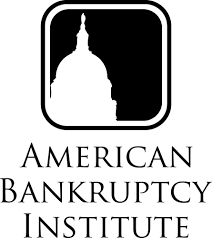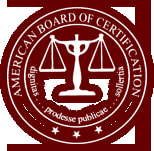|
With all the COVID-19 related unemployment, evictions and credit card collections you would think that bankruptcies would have increased, right? In fact, just six months ago I thought with all of the new cases I would be flying my newly purchased corporate spaceship to Mars and back. But alas, the expected rise in cases has not transpired. How could that be? Consumer debt was high and jobs were being wiped out. Well, there are two major factors that have contributed to a decline in consumer bankruptcy cases.
The first reason for the decline is that interest rates have remained incredibly low. If you track historical bankruptcy filing rates they tend to rise and fall in concert with interest rates. So if inflation goes up and the Fed decides to raise interest rates you can expect that cases will also rise. But there’s something more insidious happening that has caused a reduction in bankruptcy cases. Consumers are cracking open their retirement accounts and using the money to pay off unsecured debts. At first glance you might think that’s an honorable or decent thing. Or you might surmise that it’s a good idea because later on if they have lower debt they can borrow more in an emergency. But the problem with this is twofold. First, as you may have seen, the stock market continues to rise. Opening the retirement piggy bank to take money out now deprives you of experiencing any gains in the stock market. Second, you’re basically allowing the banks to use your retirement money. I want you to think very carefully about that sentence. Say it again to yourself. You are giving away your retirement money. This is money that you have earned tax free for many years, possibly decades. This is money that you need to rely on in your old age. It’s money that will cushion the blow from higher consumer costs. It could keep you in your house. It could make sure that you’re eating or paying for hospital bills. Or it could mean the difference between you being a millionaire and a pauper. Why would anyone do such a thing? Well, the first answer is that it’s probably a lot easier to take the money out right now. Certain legislation has allowed people to borrow or even take out more money from their retirement accounts if they had a hardship related to COVID-19. The second answer is that people tend to be more worried about their credit cards than they are about their mortgages, or their future. I can’t count how many clients are more interested in paying down credit cards than staying current on their mortgage even though they don’t live in their credit card. That may be because credit card companies are very aggressive when it comes to collections actions. If you miss a payment or two they start calling right away and after three months they may hire a collection attorney and take you to court. So folks legitimately get worried about being yelled at or losing access to ‘emergency funds’. But in almost all situations it’s a terrible idea is to use your 401(k) or your 403B or any of your retirement accounts to pay off an unsecured debt. It’s ridiculous. And here’s why. In chapter 7 and chapter 13 bankruptcy your retirement plan is, in almost all cases, completely exempt. That means that creditors can’t take that money or count it against you when it comes to paying them back. You could file a bankruptcy and potentially pay zero back to your creditors and keep 100% of the money in your retirement account. Your future self will be so happy if you do that. But if you spend that money to pay off Capital One or any other Wall Street firm, your future self will be terribly upset, and possibly broke, homeless and hungry. So before you borrow from your future, contact your local bankruptcy attorney. While bankruptcy may seem like an emotional decision, it’s a financial one. And often times when you’ve lost income, it’s the best financial decision you can make not just now, but for your future.
0 Comments
Your comment will be posted after it is approved.
Leave a Reply. |
AuthorJesse Sweeney is an American Board Certified consumer bankruptcy expert licensed in Colorado and Michigan, both Federal and State courts. A graduate of Michigan State University, Jesse has been practicing bankruptcy law for over 20 years and has helped consumers save millions of dollars. Archives
March 2024
Categories |
 RSS Feed
RSS Feed


